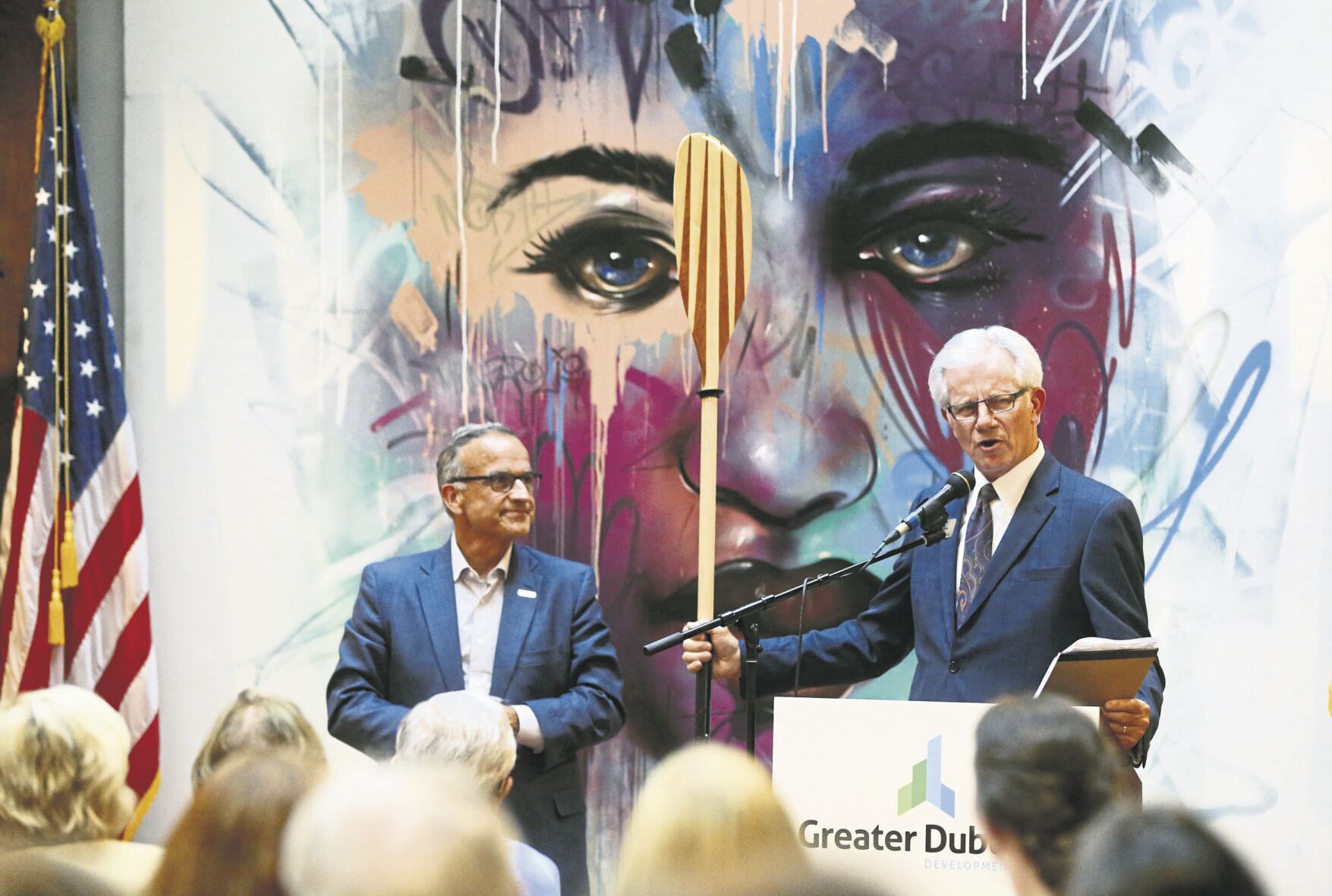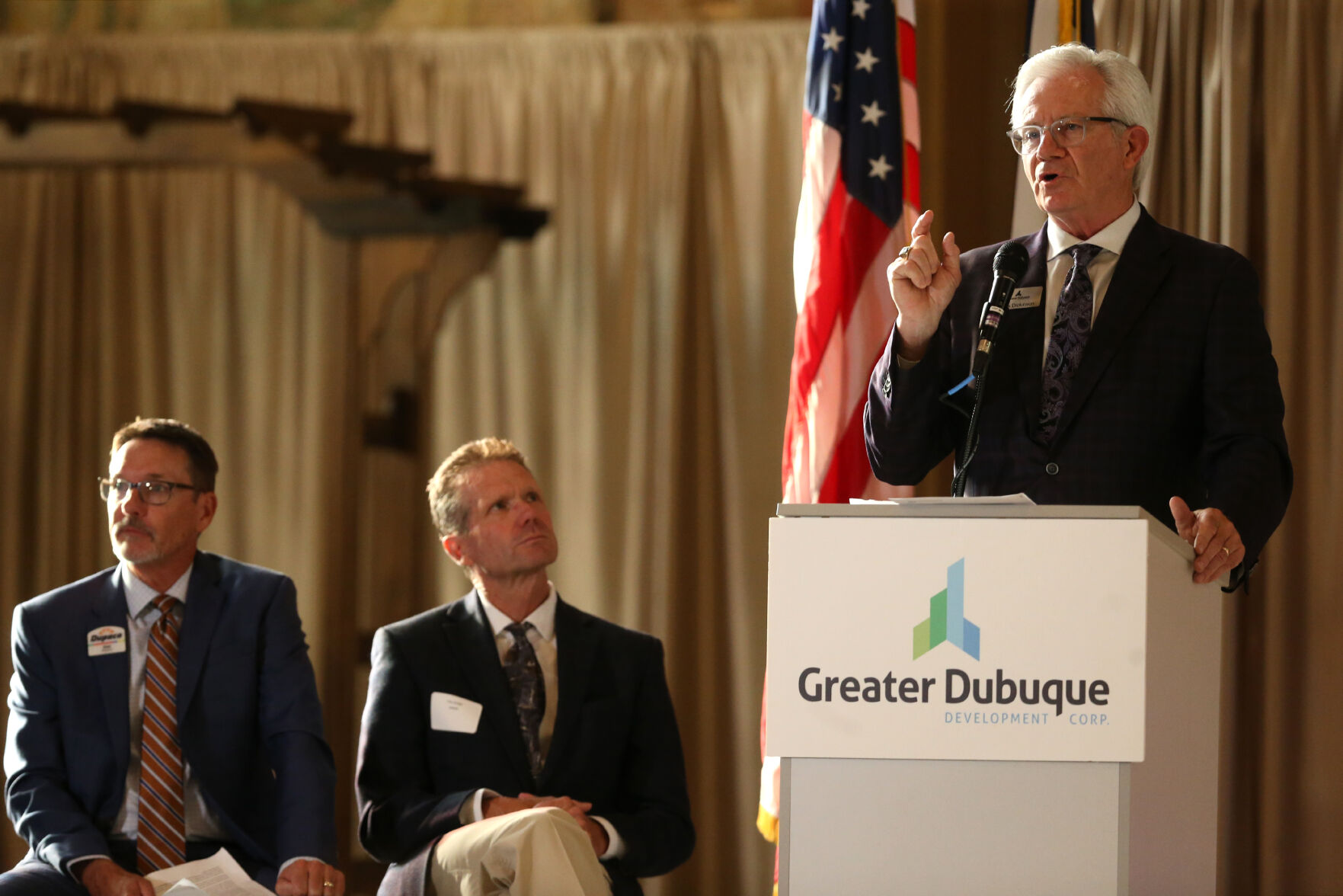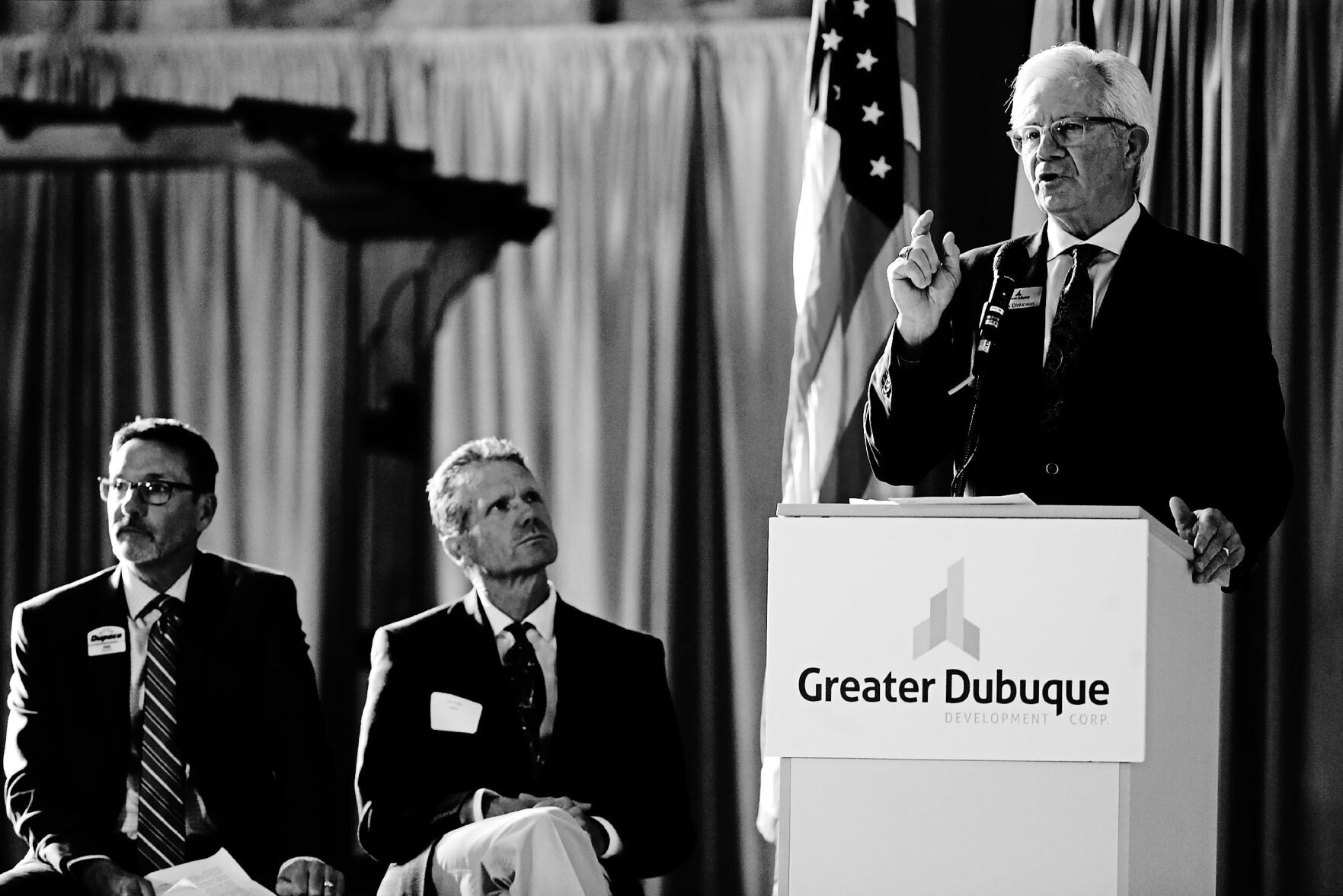Unemployment statistics comparison April 2020 (early pandemic) and September 2022 (current)
Tristate Unemployment Rates April 2020
Percentage of unemployment April 2020 Number of unemployed September 2022
Percentage of unemployment September 2022
Number of unemployed
Iowa 10.5% 180,434 2.7% 46,479
Illinois 14.5% 1,108,211 4.9% 290,602
Wisconsin 14.1% 434,733 3.2% 99,864
Source: U.S. Bureau of Labor Statistics
Dubuque Works Focus Areas for 2022-2027
Connect students, under and unemployed workers and disengaged populations to career exploration, education and training opportunities that will position them to pursue and attain high-demand jobs in our market.
Recruit talent both close to home and from across the country, including on our own regional college campuses, through effective outreach and regional promotion.
Create through education the technical, academic and soft skills needed of our workforce now and into the future through collaborations with institutions of higher education, non-profits, and other federal, state and local resources.
Retain skilled workforce and top talent in the Greater Dubuque region through integrated partnerships with business, non-profits, housing, workforce, health, recreation, and arts and culture communities.
Source: Greater Dubuque Development Corporation
Finding and retaining skilled employees is an ongoing challenge across the U.S.
In the tri-state area the Greater Dubuque Development Corp. offers some innovative workforce development programs to assist businesses find skilled workers and for workers to gain the skills needed for success.
The GDDC is a nonprofit formed for the purpose of retaining and creating quality jobs and attracting new investment in the community. The GDDC team of economic development professionals have three main goals: business development, workforce solutions and community development to help shape Dubuque’s future.
“In November 2008, the Greater Dubuque Development Corporation was presented with the task of analyzing and revitalizing Dubuque’s current workforce development strategy,” said Nicolas Hockenberry, director of Workforce Programming.
“After several meetings with key workforce development leaders within the community, the concept of “Dubuque Works” emerged. The group took a close look at existing workforce programs and identified strengths, weaknesses, duplication of services and opportunities for collaboration,” Hockenberry added.
Dubuque Works efforts and activities are driven by a five-year strategic plan. The previous five-year plan period ran from July 1, 2017, through June 30, 2022. In February, the Dubuque Works partners engaged in a half-day strategic planning session. The goal was to evaluate and align on the purpose, role and goals of Dubuque Works to inform the plan to govern work for the next five years: July 1, 2022 – June 30, 2027.
“Solutions developed through Dubuque Works reflect consideration of demographic and workforce data, as well as outreach to targeted populations. This understanding of the labor pool, combined with information gathered from in-depth human resources action and info action interviews with companies creates the opportunity for custom solutions for the greater Dubuque area,” Hockenberry said.
There are 27 Dubuque Works partners, including the City of Dubuque, Clarke University, Community Foundation of Greater Dubuque, Dubuque Area Chamber of Commerce, the Dubuque Community School District, East Central Intergovernmental Association, Emmaus Bible College, Goodwill, Iowa Vocational Rehabilitation Services, Loras College, Multicultural Center, Travel Dubuque, University of Dubuque, University of Wisconsin-Platteville, the Western Dubuque Community School District and the Telegraph Herald.
One of the programs of Dubuque Works is Opportunity Dubuque a collaborative job training effort developed in response to local employers’ needs for a skilled workforce. This nationally recognized program builds career opportunities with local businesses and Northeast Iowa Community College’s Career Pathways Certificate.
Frank Washington is an Opportunity Dubuque/Career Pathways graduate who completed the commercial driver’s license certificate at NICC.
“Before I started the CDL program at NICC, I knew nothing about the truck. I grew and learned. Now I’m driving full time for Atlantic Bottling Co. That’s what I want to keep doing — developing my skills and knowledge,” Washington said in a release.
Most Career Pathway Certificates at NICC can be completed in four to six months. The programs provide hands-on training to lead to entry-level employment. Some of the programs have employer sponsors that hire the CPC graduates. Students have the option of transferring credit into a diploma or two-year degree program to increase their employment options and earning potential.
Within specific CPC programs, tuition assistance and childcare support is available to those who qualify. In partnership with the GDDC, the NICC will provide childcare assistance at no cost while students are in class for select CPC programs. In addition, full-time employed graduates from select CPC programs may qualify for additional childcare support for up to 12 months at a licensed or registered childcare provider. Learn more about Career Pathway Certificates at nicc.edu/academics/programs-by-award/career-pathway-certificates.
Since 2012, more than 850 students have graduated from Opportunity Dubuque programs in 18 high demand disciplines including advanced manufacturing, transportation, health and information technology. Opportunity Dubuque is funded through the GDDC with commitments from the City of Dubuque, Dubuque County and the DRA/Q Casino.
While Opportunity Dubuque works to create skilled workers, another Dubuque Works program — Work That Works is the newest program and an innovative solution to filling the growing workforce needs of area employers and connecting students at area colleges with high-paying jobs.
Students at Clarke, Loras, Emmaus, NICC, University of Dubuque and the UW-Platteville are employed with local employers. Opportunities vary from retail, warehousing and manufacturing with many paying up to $23 per hour. Work That Works is not an internship program. The goal of the program is to connect employers with students looking for employment. The work experience could provide an additional avenue to recruit students into internship programs once they have determined their academic focus.
“The Work That Works program is a great opportunity for us to connect with students in the area,” Stacie Halverson, vice president human resources, Kendall Hunt Publishing, Westmark Enterprises and Great River Learning said. The publishing company has partnered with the GDDC for many years.
“Work That Works promotes the opportunities we have here at Kendall Hunt Publishing, Westmark Enterprises, and Great River Learning in a way that speaks to what students are looking for. We work with student’s class schedules and appreciate area institutions of higher learning working with the Greater Dubuque Development Corporation to match students with our current job openings,” Halverson said.












